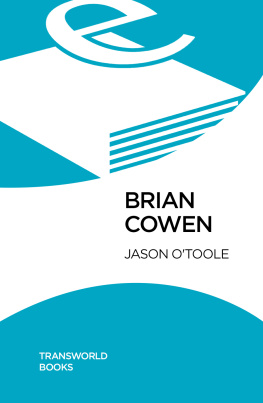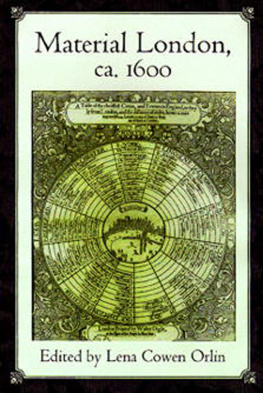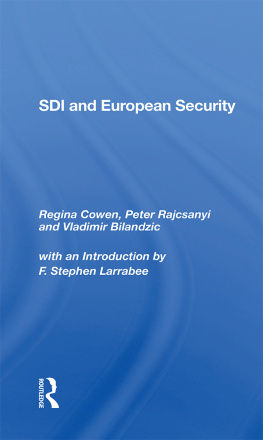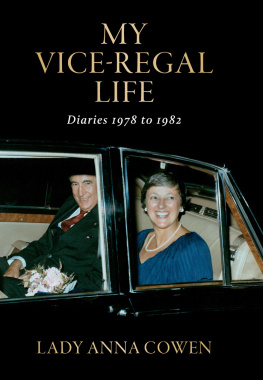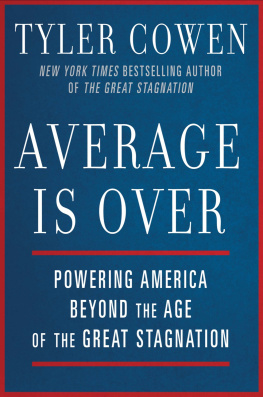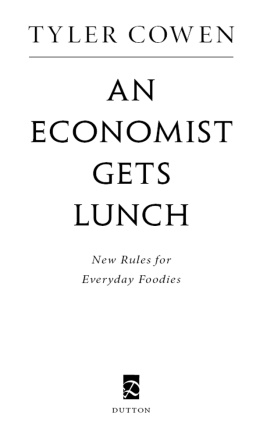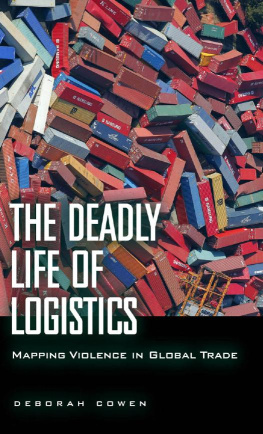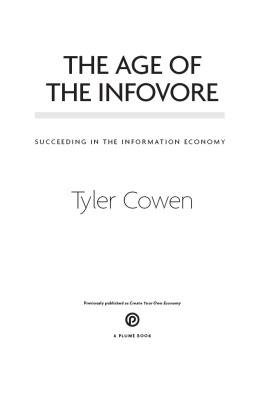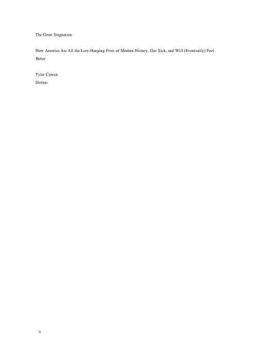Contents
About the Book
Meet Irelands new Taoiseach, Brian Cowen
Despite a high profile at the centre of Irish political life for more than twenty years, relatively little is known about our new leader. Just who is Brian Cowen?
The story begins in the village of Clara, Co. Offaly, where family, local life and the GAA were formative influences. The sudden and unexpected death of his father, Ber Cowen, Fianna Fil TD for Laois Offaly, thrust a twenty-four year-old Cowen into the heart of Irish politics.
After a ten-year apprenticeship on the back benches, Cowen was appointed to his first ministerial position by Albert Reynolds and later went on to hold the senior cabinet positions of Health, Foreign Affairs and Finance. By the time of Bertie Aherns resignation, Cowens standing in the party was such that his election to the leadership of Fianna Fil seemed inevitable. On 7 May 2008, Brian Cowen became Irelands eleventh Taoiseach.
Here, for the first time, is a portrait of Brian Cowen which follows his remarkable life story, tracing the road to power from early childhood right up to his eventful early months in the office of An Taoiseach.
BRIAN COWEN
The Path to Power
Jason OToole
Acknowledgements
I would like to my express my gratitude to An Taoiseach Brian Cowen for agreeing to carry out several in-depth interviews with me for this book.
Im particularly appreciative of the help Albert Reynolds gave me with his unique insight into Brian Cowens early political career. I am also tremendously grateful to Niall Stokes, my editor at Hot Press magazine, for his indispensable support and advice. I want to offer my heartfelt appreciation to my publisher Eoin McHugh at Transworld Ireland. My thanks also to my copy-editor Gillian Somerscales for her valuable support.
This book could not have been written without the help and encouragement of many people, including Mary Cowen, Michael Cleary, Michael Chester, Dick Roche, Sean OConnor, Liam Kelly, Gerry Steadman, Darren Kinsella, Declan Cassidy, Sinead Dooley, Eoghan Harris, Paul Drury, Bernard Brady, Liam McGuinness, Tom Prendeville, Gosia and Rysiek Jaszowski, Anne Sinthunont, Tom Tuite, Martin Holland, Gary Walsh, T. S. ORourke, Brian Beharrell, George Fitzgerald, John Herdman, Jimmy and Fleur Forbes, Paddy and Rose Gowran, Stephen and Emma Raeside, Frank Bambrick, Alfie Sage, Neville Thompson and Lee Dunne. Also thanks to all my colleagues at Hot Press, including Jackie Hayden, Mairin Sheedy, Stuart Clark, Roisin Dwyer, Duan Stokes, Graham Keogh, Mark Hogan, Cathal Dawson, Gavin Feeney and Brett Walker.
Finally, I would like to take the opportunity to thank Lidia and Jan Dacknowski for allowing me the use of their home in Poland to write a substantial portion of this book. I am eternally indebted to my family particularly my wife Agnieszka, my daughter Marianne, my brother Keith, my sisters Lorraine and Amy, my mother Rosaleen and my father Gerald all of whom made countless sacrifices to enable me to finish it.
PROLOGUE
The Homecoming
May 2008
Our memory is about loss, grievance and exile and lost opportunities. Now weve a totally transformed country. Not one that will be guaranteed success in the future but one that should be facing the challenges that confront it now with a far greater degree of confidence, a far greater degree of self-belief than some would have us believe.
So spoke Brian Cowen in his homecoming speech as Taoiseach in Tullamore, County Offaly.
As he stood on the platform in OConnor Square on that warm spring day, he looked out over several thousand well-wishers who had come to celebrate the historic homecoming of Offalys first ever Taoiseach and felt honoured that so many people had turned out to share his day in the sun. It was an emotionally charged moment for Cowen: the last time he had stood in this very spot to give a speech was back in the 1984 by-election prompted by the untimely demise of his father Ber Cowen. Cowen told the crowd how back then, in the mid-1980s, when he was starting out on his path to power, there was a sense of defeatism in the country. A sense that wed never achieve the possibilities that the founders of our state had set for ourselves, a sense wed gone in the wrong direction and that we might not be able to retrieve things. Politicians put themselves in front of the people to do two things. First, to tell the people as they see it how it is, and secondly to believe in the people, because it is the Irish people over the last twenty-five years who have transformed this country.
Cowen spoke, without notes, for almost twenty minutes. He told the crowd that the only reason he was standing in front of them as Taoiseach was because of the confidence the electorate in LaoisOffaly had placed in him over the past twenty-four years. As I make that journey further, as a leader of a government that will forge a new future for our people, I ask you to stick with me. I ask you to believe in me. You will get from me everything I can do to make this a better country, not only at home but abroad as well. And I ask our own people to take up our responsibilities as citizens and not to look to government to solve every problem, he declared.
I will work with you day and night, hour and day, to make sure this is a better country for all. A country for my children and your children. A country that will be environmentally sustainable. A country that pursues excellence in providing public services. A country that will put the citizens at the centre of our concerns. Be part of what we can build now. And lets make sure that everything weve achieved is not dissipated and wasted on a me generation or a selfishness or a materialism that takes away what has made us what we are in the first place decent, honourable and hard-working people who have a love of their country. Thats what Im about.
Cheered on by the crowd, Cowen sang a bit of Frank Sinatras My Way before launching into The Offaly Rover, telling his audience: One of the requirements when you get into politics is that you have to be able to sing! The audience loved seeing the Taoiseach sing; and Cowen was giving his supporters a clear signal that his rise to high office would not change him.
Recalling the event later, Cowen reflected: Ive always enjoyed public speaking and I liked that part of the homecoming because I liked the idea of going back to that natural level of communication, which isnt through a PR company or a press statement or a soundbite or a clever phrase. Its a natural empathy an empathy that one should have between the public representative and the public.
Cowens day had begun with the press on his doorstep. He knew that the media scrutiny would intensify dramatically now that he was Taoiseach, but even so he was surprised when a Garda knocked on his door to explain that a journalist and photographer from a national newspaper were sitting in a car outside the family home in the hope of carrying out an impromptu interview. Mr Cowen politely turned down the request. We were also informed that he did not take kindly to his home being photographed, but, well, the people like to know where their Taoiseach lives, wrote Jody Corcoran in the next days Sunday Independent.
The homecoming proper began at midday in Edenderry, where five hundred people a sizeable crowd in this small town had turned up to celebrate the occasion. From there Cowen moved on to Tullamore, where over five thousand people had gathered in the square to greet the local hero. The atmosphere was electric, almost carnival-like, the town saturated with bunting, tricolours and the white and gold flags of Offaly waving from many of the shops and pubs. People wandered around in Cowenista T-shirts on which Cowens face was superimposed on the iconic image of Che Guevara. The T-shirts were being sold at 10 a go in aid of charity. Im not suggesting that their policies are the same, explained Tim Quinlan, who designed the T-shirt, to an
Next page
